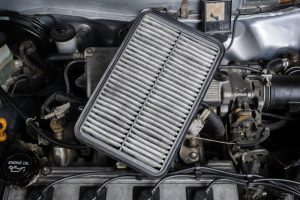
High humidity can actually make us feel either hot and sticky or cool and sticky especially during the warm summer months. Moreover, it gives off a distinctive odor in your home. When we cut down the air temperature and invest in cooling to fight off that “sticky” feeling, the results can be “cold and sodden.”
Most of us think high humidity only happens during summer but the most critical times of the year where the high humidity becomes an issue is during spring and fall when temperatures are more or less stable (times when cooling is not required) and outside humidity levels are high.
Indoor humidity can’t be sufficiently or adequately controlled with a ventilation system/cooling system alone. While various people assume that modifying the indoor controller makes the system work better, it is actually the other way around, contrary to popular belief. Modifying the indoor controller without understanding how these things work only forces the radiator or the entire AC structure to work harder making it wear down sooner.
The IOM report covered pertinent literature published up to late 2003 on a wide range of health effects including asthma. The findings regarding asthma were that sufficient evidence existed for associating the presence of mold or other agents in damp buildings with asthma exacerbations and that limited or suggestive evidence existed for associating exposure to damp indoor environments with asthma development. The committee concluded that excessive indoor dampness is a public health problem and that prevention or reduction of this condition should be a public health goal.
The WHO guidelines report covered literature published up to July 2007 on a number of health effects including asthma. Regarding asthma, it was concluded that there is sufficient epidemiological evidence of an association between indoor dampness-related factors and asthma development, asthma exacerbation, and current asthma. These findings were upheld in an updated review. Recommendations from the WHO document included ‘Persistent dampness and microbial growth on interior surfaces and in building structures should be avoided or minimized, as they may lead to adverse health effects’.
Check out full article here.
High humidity levels in our homes or other establishments can be due to mold growth, dust mites, and damaged or dented floors or furniture. It is one of the many reasons why your indoor air feels warm and unbalanced even with your HVAC systems turned up to its maximum power. It prompts us to use our HVAC unit almost 24/7 driving our utility charges through the roof and to some extent, even warrant expensive replacements once they break down without warning because of overuse.
Make note of these symptoms that indicate your air filter needs replacing:
Reduced fuel economy
Your engine compensates for lower amounts of oxygen by consuming more fuel to produce sufficient power. Thus, if you notice that your fuel economy is going down, it could be an indication that the air filter needs replacing. However, this is true only for carbureted cars, most of which were made before 1980. Newer cars with fuel-injected engines have onboard computers which calculate the amount of air taken into the engine, and adjusts the fuel flow accordingly. Therefore, the cleanliness of the air filter on newer cars shouldn’t significantly affect fuel economy.
Misfiring engine
Restricted air supply from a dirty air filter results in unburnt fuel exiting the engine in the form of soot residue. This soot accumulates on the spark plug, which in turn cannot deliver the necessary spark to combust the air-fuel mixture. You’ll notice that the engine does not start up easily, misfires, or jerks roughly.
Full article at Your Mechanic.
A dirty air duct is the number one reason behind an HVAC failure and other HVAC-related issues. A filthy ductwork limits the air flow into the system’s air handler. The confined air flow puts an extra strain on your system and could, after some time, wear out the engine and make your system overheat and even suffer from a complete breakdown. Replacing your ductwork is a little expensive but it will surely benefit you in the long run without you enduring any discomforts along the way.
Moreover, a dirty ductwork makes your fan engine work harder and use up more energy. One of the most effortless and fastest approaches to lowering your electric bill is to keep a well-maintained system. A messy air duct makes your Heating, Ventilation and Air Conditioning System and pipes wear out faster. This can lead to pricey HVAC cleaning costs or a need to replace your HVAC unit or HVAC parts sooner than anticipated.
Check this video out to find out more about poor indoor air quality: